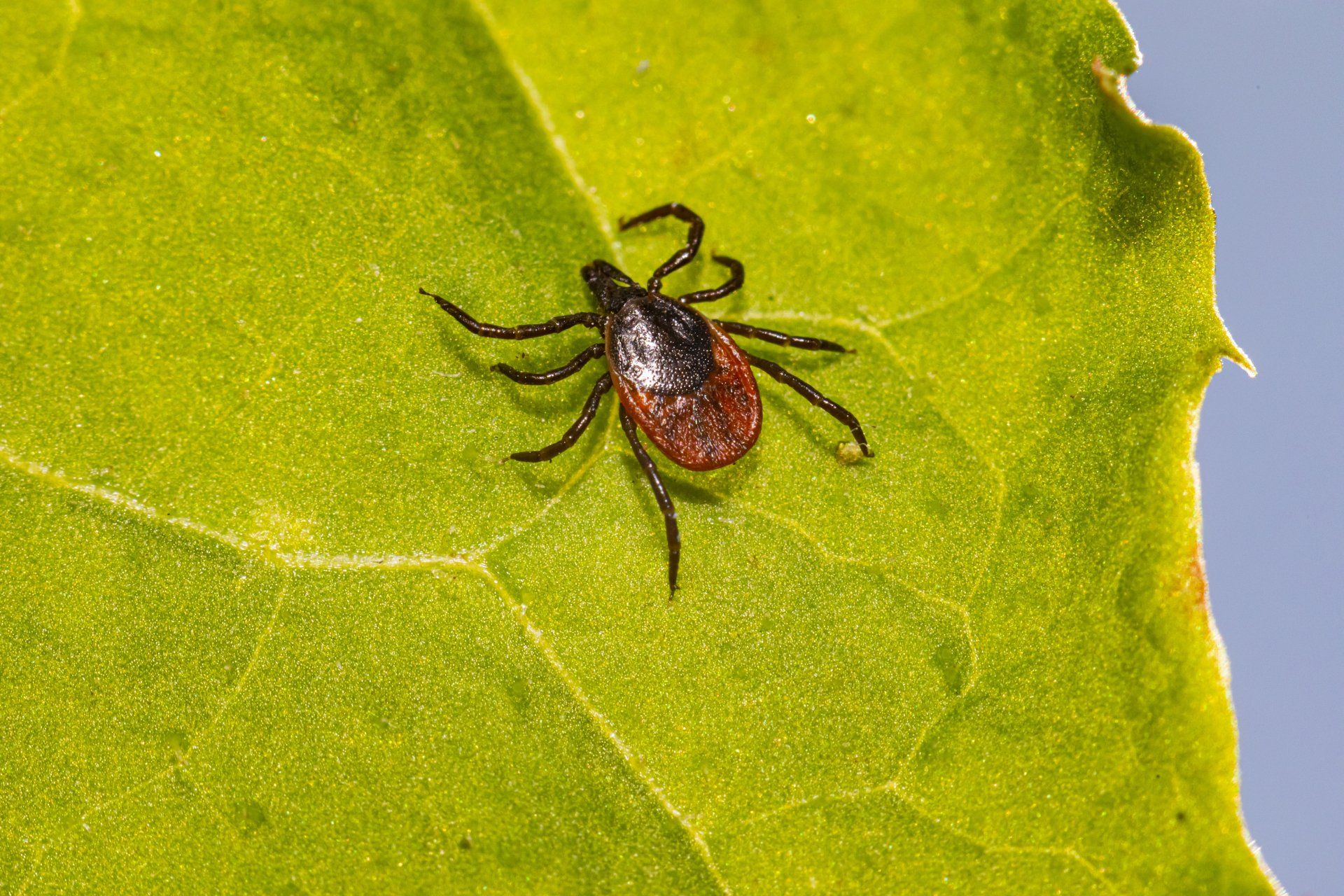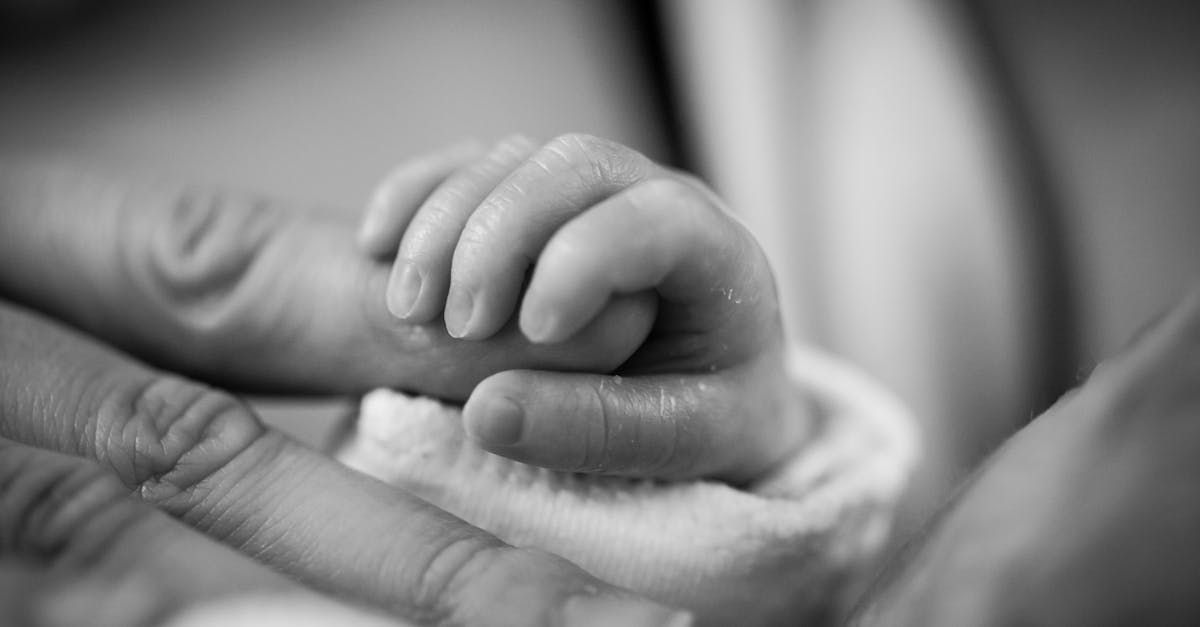Body Image Concerns
Pediatric Associatees • August 25, 2021
Changes in eating patterns can be an expression of body image issues. One of the most difficult to notice is bulimia nervosa.
What is bulimia nervosa?
Bulimia nervosa is an eating disorder in which a child has abnormal or unhealthy eating habits, often due to desire for a certain appearance or body type. With this disorder, a child will eat large amounts of food at once and will feel as if they don’t have the control to stop (binge eating). They will then self-induce throwing up (purging) to avoid gaining weight. They may also try to control their weight by using laxatives, diuretics, weight loss pills, exercising or fasting.
Who is at risk?
Any child can be affected by bulimia. It is more common in girls and usually begins between ages 10-15. Many factors play a role in a child becoming bulimic such as genetics, stress, and pressures to have a particular appearance or weight. Children with low self-esteem, weight concerns, or those with anxious or depressive systems are at a higher risk for developing bulimia.
What are the symptoms of bulimia nervosa in a child?
Many children with bulimia are a normal weight for their height, so it can often go unnoticed. Main features include:
- Binge eating at least once a week for three months
- Feeling out of control, ashamed, guilty, or afraid after binge eating
- Purging or exercising after eating to avoid weight gain
- Judging themselves based on their body shape and weight
Additional red flags that may indicate bulimia nervosa include:
- Anxiety about eating meals in public
- Stealing or hiding food
- Constant talk about their weight or food
- Spending excessive time in the restroom, especially after meals
- Consuming large amounts of food at once
- Constantly exercising
- Depression or isolation
How is bulimia nervosa diagnosed in a child?
There is no medical test used to diagnose bulimia nervosa, but there are many clues that help doctors and nurses identify children with bulimia. Most information is obtained by talking to the child or parents about the child’s eating habits, behaviors, and thoughts.
Many children with bulimia nervosa present with a history of tooth or gum decay, sore throat, swollen salivary glands, dizziness/weakness, abdominal pain, or calluses on the fingers or knuckles due to induced vomiting.
There are also tests that doctors or nurses use to help assess other areas of the child’s health, since bulimia nervosa can lead to many additional health problems. These tests include blood tests, urine tests, or an electrocardiogram (which assesses a child’s heart).
What are possible complications of bulimia nervosa in a child?
Bulimia nervosa can cause many health problems including:
- Dehydration
- Feeling tired
- Stomach pain, bloating, and constipation
- Damage to the esophagus
- Damage to teeth, gums, or cheeks
- Irregular menstrual periods
- Problems with heart, kidneys, or glands
How is bulimia nervosa treated in a child?
Treatment for bulimia nervosa includes:
- Psychotherapy which involves the child meeting with a therapist to talk about their feelings, thoughts, and life and how that has affected their body image and eating habits. This can be done with individualized sessions, or with a group or the family.
- Use of medications such as antidepressants
- A healthy eating plan
- Dental care for damaged gums and teeth
- When should I call my child’s healthcare provider?
Call us at (417) 882-1600 if your child’s weight changes dramatically (losing or gaining), if your child’s cheeks or glands swell, if you notice tremors, extreme thirst or cold, or if your child demonstrates the signs mentioned above.
Follow this link for who to contact in the Springfield area for help and treatment
Follow this link
for a review of medical research on this topic
Follow this link
for more information on bulimia nervosa and other eating disorders
Hannah Peck University of Missouri School of Medicine Class of 2023

A news alert pops up on your phone: there has been a recall of organic carrots because of E. coli. Oh no! You remember packing carrots in your children’s lunch boxes this morning. Food recalls can be concerning and might affect your family’s health. When these events happen, like recent recalls of carrots and cucumbers, it’s important to know what steps to take and what warning signs to watch for. Foods can be recalled by the Food and Drug Administration (FDA) if there is a problem, like incorrect labeling or if the food could make people sick. The FDA learns about these issues when two or more people get sick from eating the same contaminated food. Food can get contaminated at any step—from being grown on a farm to being sold in stores or prepared at home. For example, dirty water might be used to water crops, storage bins might have germs, refrigerated foods might get too warm, or food might be prepared in unsanitary conditions. Even though farmers, sellers, and food preparers work hard to keep food safe, about 48 million people in the U.S. still get sick from foodborne illnesses each year. Children are more likely to get sick because their immune systems are not as strong as those of adults. The chart below shows some of the most common disease-causing germs in the United States.

Alpha-Gal Syndrome (AGS) is an allergic reaction to a sugar called galactose alpha-1,3-galactose (alpha-gal for short). It is found in the cells of non-primate mammals such as cows, pigs, & sheep. The allergy is usually triggered by the bite of the Lone Start tick (Amblyomma americanum). Not everyone who is bitten by the tick will develop AGS. Because the Lonestar tick is very common here in southern Missouri, tick bite prevention is very important to prevent triggering AGS or other conditions caused by the tick. After a tick bite, it can take 1-3 months for a person’s immune system to become sensitive to alpha gal. The person’s body sees alpha gal as an “invader” that should not be there and makes lots of antibodies to fight the “invader” if it is exposed to alpha gal again. If the person eats foods with alpha gal after this, their body will try to fight off the “invader” by releasing lots of antibodies, resulting in symptoms of an allergic reaction.

Traumatic brain injuries can happen with any sport and are not always associated with obvious symptoms such as passing out. Even mild symptoms can be long-lasting. Current research recommends rest for 1-2 days then gradually returning to full activities. The following links give more information on when to seek emergency care, managing rest and recovery periods after a concussion and more. Concussions: What Parents Need to Know Prolonged rest is not the best plan

RSV is a common respiratory illness usually in the wintertime. Symptoms include runny nose, cough and fever and can progress to difficulty breathing severe enough to need a hospital stay. Serious infection is more likely for babies in their first RSV season. You can protect your baby by washing hands, breastfeeding and limiting childcare and smoke exposure. An antibody medicine called Beyfortus has been developed to significantly decrease babies' risk of serious RSV disease. It is a one-time injection given in the fall and winter seasons that gives five months of protection starting in just a few hours. Most babies from birth to 7 months and high-risk infants and toddlers 8-19 months may qualify to receive a dose. This medicine is not a vaccine but it can be administered at the same time as routine vaccines. This medicine is recommended by our providers, the American Academy of Pediatrics and the Centers for Disease Control. When a mother receives Abrysvo (RSV vaccine) during pregnancy, her baby may not qualify for Beyfortus. In this case, the mother's antibodies provide a similar benefit to the medicine. We are expecting Beyfortus to be available starting October 1, 2024 and that it will be covered by most health insurance plans. However, we cannot guarantee supplies or insurance payment. Please consider the following links for more information: RSV illness RSV vaccine for moms and antibody medication for infants

What can cause burns? Burns are a common injury in kids that can cause pain, tissue damage, and permanent scarring. They can happen with hot liquid, fire, electricity, chemicals, hot metal, or steam. It’s important to take preventative steps because of how fast they can occur. The majority of burns occur at home and in the kitchen, with most kids being under 5 years old. Below are some basic safety tips that can help make your home a safer place and aid in preventing your children from getting burned. How to prevent burns in the kitchen: - Keep hot liquids out of reach of your child. - Don’t leave anything cooking on the stove unattended. - Use the back burner when able and turn pot handles toward the back of the stove. - Don’t carry your child while cooking with hot liquid to avoid splashing them. - Don’t let your child grab anything out of the microwave without your help. - It can be fun to get your child involved in the kitchen, just don’t leave them unattended. How to prevent burns in other areas of the house: - Test the temperature of the bath water yourself before your child. - Always keep matches and lighters far from reach of your child. - Keep all household chemicals locked up so there’s no chance of your child getting ahold of them. - Tuck away all electrical cords and utilize outlet covers if possible. - Avoid placing hot drinks or food near the edges of tables or on placemats that kids could drag toward them. - Don’t let your child hold sparklers or play with fireworks. - Remember to have your kids wear protective clothing and sunscreen when outside. When your child is old enough, talk to them about fire safety and why these rules are important. Kids are curious and don’t understand all the things that can cause them harm. For more information on how to prevent burns, you can find more tips here and here . Callyn Heavin MS3 University of Missouri School of Medicine Springfield Campus

What is Bedwetting? Bedwetting is a common issue for many children. In fact, there are about 5 million children in the U.S. who wet the bed past the recommended age. Many children are toilet trained between the ages of 2-4, but some children develop and train at their own rate. If your child has accidents at night, they are not alone. And as a parent, neither are you. Effects of Bedwetting Bedwetting can cause strain on children and parents, and may worsen social anxiety, depression, and isolation from peers. If your child experiences bladder control problems after age five and it is bothersome to them and your family, it may be worth reaching out to the child’s pediatrician to seek help. Types of Bedwetting There are two types of bedwetting: #1) Primary bedwetting is the focus of this article and describes children who never achieved dry nights since potty training (typically these children have no accidents during the daytime). #2) Secondary bedwetting is when a child achieved consistent dry nights for at least 6 months but has started bedwetting again. This can be related to many factors, including urination dysfunction, constipation, or neurologic dysfunction. This type of bedwetting is an urgent concern so please call your PCP promptly. Common reasons for bedwetting Communication between the brain and bladder . If the brain is sensing the bladder is filling up and sends a message to empty, bedwetting will happen. On the contrary, if the brain does not recognize that the bladder is filling, your child may not wake up to use the restroom, and bedwetting will happen. Stress or trauma . Sometimes when children experience stress or traumatic events, such as an illness or life stressor, they can have bouts of bedwetting. This can occur even if the child was previously dry at night. Medical concerns . Rarely, some children begin to wet the bed because of a medical problem. Managing bedwetting Keep the following tips in mind: Do not blame your child . It is not your child’s fault. Offer support, not punishment, for wet nights. Be honest with your child about what is going on . Let your child know it is not their fault, and that most children outgrow bedwetting. Protect the bed . A plastic cover under the sheets protects the mattress. Let your child help . Encourage your child to help change the wet sheets and covers. This can teach responsibility, as well as keep your child from feeling embarrassed if the rest of the family knows . Important note : if you child views this as a punishment, it is not recommended. Bedwetting Treatment The initial treatment for bedwetting includes behavioral and lifestyle changes. These may include, but are not limited to: limiting fluid intake after a certain time at night eliminating bladder irritants such as carbonation or artificial colors constipation management creating a schedule for bathroom use You can reach out to your child’s pediatrician for guidance on what changes may work best. If bedwetting does not stop after behavioral changes, there are additional medical treatments that may be warranted. Please discuss these options with your child’s pediatrician if other methods have not been effective. For further details, you can read more about bedwetting here and here Clayton Brinkley MS 3 University of Missouri School of Medicine Springfield Campus

Diabetes mellitus is a metabolic disorder that is due to insulin resistance, the body’s hormone that regulates sugar, which leads to increased sugar levels in the body known as hyperglycemia. There are two common types of diabetes mellitus: Type I is an autoimmune form that leads to destruction of cells in the pancreas that produce insulin. Children with type I are typically born predisposed to the disease and are often diagnosed early in life. Type II is the acquired form of diabetes that is due to insulin resistance in the body. Insulin is produced in pancreas normally, but constant exposure of insulin in the body due to persistent high sugar levels leads to resistance. Type II diabetes (T2DM) is mostly associated with obesity. While T2DM is more commonly diagnosed in adults, increasing rates of obesity in children has led to more cases of T2DM in children, typically adolescents. While T2DM in children develops slowly, there are some signs of hyperglycemia: Increased thirst and/or hunger Frequent urination Fatigue Darkened areas of skin, commonly around neck, armpit, or groin Frequent infections Blurry vision It is recommended to screen your child for diabetes if they have started puberty, or at least 10 years old, and are overweight or obese. Consider screening your child for diabetes if they have these risk factors: o Family history of diabetes o Overweight o Poor diet o Inactivity o Adolescent girl o Black, Hispanic, American Indian and Asian American ethnicity o Low birth weight or preterm birth o Maternal gestational diabetes Prevention Instilling healthy lifestyle habits in your children is the best way to prevent T2DM. Encourage the household to eat healthy foods and get more physical activity. Healthy foods include whole foods such as fruits, vegetables, and whole grains. Cut down on processed foods, sugary drinks, and fatty foods. References Tillotson CV, Bowden SA, Shah M, et al. Pediatric Type 2 Diabetes. [Updated 2023 Nov 12]. In: StatPearls [Internet]. Treasure Island (FL): StatPearls Publishing; 2023 Jan-. Sai Supriya Vuda MS3 University of Missouri School of Medicine Springfield Clinical Campus

Have you ever wondered why your provider didn’t order an x-ray? Like many medical tests, there are benefits and risks to imaging studies. Medical imaging is useful for diagnosing many medical problems and can help determine the treatment for some patients. Certain forms of imaging such as X-rays and CT scans contain ionizing radiation. Ionizing radiation can damage the DNA in our cells, which may increase the risk of developing cancer. The harmful effects from radiation are seen with large doses and lots of doses given in a short amount of time. Children are more sensitive to radiation and have a longer life expectancy, so it’s especially important to reduce their radiation exposure. While medical imaging may sound dangerous, it’s important to consider that we are all exposed to low levels of radiation every day. This “background radiation” comes from rocks, soil, building materials, and space. Some forms of medical imaging use higher amounts of radiation than others. For example, a single chest x-ray is comparable to 1 day of background radiation, while a CT scan of the abdomen is equivalent to 20 months of background radiation. Healthcare providers are aware of these risks, which is why they try to order imaging only when medically necessary. It is recommended to use the lowest amount of radiation possible that still provides a good quality image. Techniques are used to lower radiation doses for pediatric patients. Additionally, radiation is focused only on the area of the body that needs imaged rather than the entire body. What you can do to reduce radiation risk for your child: Keep a record of your child’s imaging studies and share them with your healthcare team. This can help reduce the need to repeat imaging if you need to switch providers. Ask your healthcare provider or imaging facility if the radiation dose is lowered for pediatric patients. Ask your provider if it is possible to use imaging methods that do not require radiation, such as MRI and ultrasound. More information: FDA CDC Image Gently Sally Heil MS3 University of Missouri School of Medicine Springfield Campus


